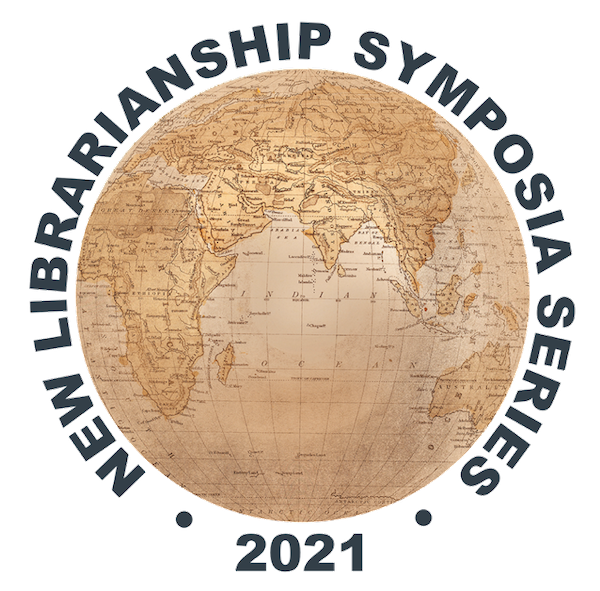Submission Type
Paper Abstract Submission
Symposium Selection
Post-neutrality librarianship
Keywords
Information Literacy; Librarian Awareness; Information Literacy Working Group; Associative Movement; Library is a space for learning and rupture; Critical use of information
Abstract
How to sensitize librarians and encourage awareness that the library is a space for learning and rupture, that provides effective conditions for developing a critical and ethical sense based on the principles of Information Literacy in their community? This is one of the questions motivating the Information Literacy Working Group (GT - CoInfo) of the Federação Brasileira de Associações de Bibliotecários, Cientistas de Informação e Instituições (FEBAB) to scrutinize its agenda of actions, becoming a space for reflection, from the perspective of the associative movement, on how to establish links between practices and academic discussions about Information Literacy in Brazil. Created in May 2020, The GT-CoInfo seeks to strengthen discussions, studies and practices and contribute with actions and strategies for improving the continuing education of Librarians, Library Sciences students and professionals to better prepare them to work with Information Literacy in Brazil. Since its creation/inception, the GT-CoInfo has hosted numerous online webinars where the invited multinational speakers discussed the important educational and social roles the librarian must assume in this scenario of fake news, disinformation, pandemic, infodemic, social vulnerability as well as the United Nations 2030 Agenda. Aiming to expand among the librarian community the knowledge, views and actions on the epistemological and empirical foundations of Information Literacy, the GT - CoInfo has worked in many initiatives to fulfill its goals. Weekly publications on social media called “CoInfo Indica”, with recommended reading on the many aspects of Information Literacy; the creation of an extensive compilation of bibliography on Information Literacy, made available to the public through FEBAB’s Web Repository; and the development of a dossier with public utility information about COVID-19, helplines for women, entertainment and tips for entering into the library professions, all as part of a project in collaboration with the Working Group in Ethnic-Racial Relations and Decoloniality, supporting unemployed and self-employed women. The GT - CoInfo believes that advocacy in favor of Information Literacy is only possible from a place of community and cooperation. For that reason, it has established partnerships with Library Schools, with the purpose of awakening the academics of the importance of including Information Literacy as a mandatory discipline of study in the curriculum. We are treading a path whose ideal is to redefine the collective thinking and attitudes of librarians about the need for an active and non-neutral social role through their performance as Information Literacy “promoters, workes, advocates”, sensitizing them to the reality that the library belongs to the community and, therefore it should promote equity, inclusion, autonomy and empowerment based on the critical use of information.
Word version of file
Included in
Information Literacy Working Group of the Brazilian Federation of Associations of Librarians, Information Scientists and Institutions: collaborations for a new awakening of Librarianship in Brazil
How to sensitize librarians and encourage awareness that the library is a space for learning and rupture, that provides effective conditions for developing a critical and ethical sense based on the principles of Information Literacy in their community? This is one of the questions motivating the Information Literacy Working Group (GT - CoInfo) of the Federação Brasileira de Associações de Bibliotecários, Cientistas de Informação e Instituições (FEBAB) to scrutinize its agenda of actions, becoming a space for reflection, from the perspective of the associative movement, on how to establish links between practices and academic discussions about Information Literacy in Brazil. Created in May 2020, The GT-CoInfo seeks to strengthen discussions, studies and practices and contribute with actions and strategies for improving the continuing education of Librarians, Library Sciences students and professionals to better prepare them to work with Information Literacy in Brazil. Since its creation/inception, the GT-CoInfo has hosted numerous online webinars where the invited multinational speakers discussed the important educational and social roles the librarian must assume in this scenario of fake news, disinformation, pandemic, infodemic, social vulnerability as well as the United Nations 2030 Agenda. Aiming to expand among the librarian community the knowledge, views and actions on the epistemological and empirical foundations of Information Literacy, the GT - CoInfo has worked in many initiatives to fulfill its goals. Weekly publications on social media called “CoInfo Indica”, with recommended reading on the many aspects of Information Literacy; the creation of an extensive compilation of bibliography on Information Literacy, made available to the public through FEBAB’s Web Repository; and the development of a dossier with public utility information about COVID-19, helplines for women, entertainment and tips for entering into the library professions, all as part of a project in collaboration with the Working Group in Ethnic-Racial Relations and Decoloniality, supporting unemployed and self-employed women. The GT - CoInfo believes that advocacy in favor of Information Literacy is only possible from a place of community and cooperation. For that reason, it has established partnerships with Library Schools, with the purpose of awakening the academics of the importance of including Information Literacy as a mandatory discipline of study in the curriculum. We are treading a path whose ideal is to redefine the collective thinking and attitudes of librarians about the need for an active and non-neutral social role through their performance as Information Literacy “promoters, workes, advocates”, sensitizing them to the reality that the library belongs to the community and, therefore it should promote equity, inclusion, autonomy and empowerment based on the critical use of information.


